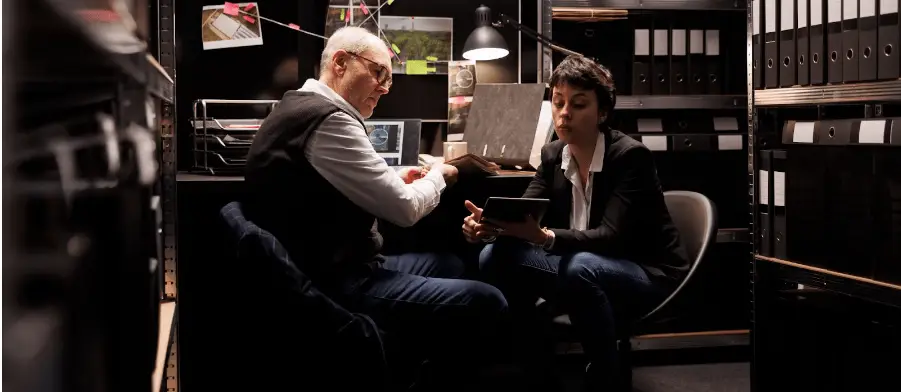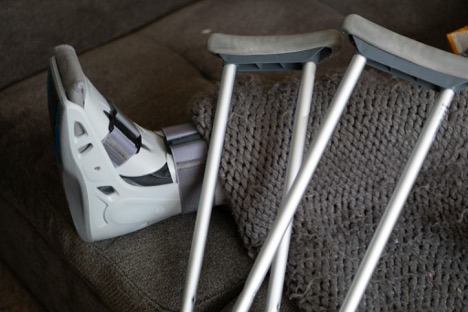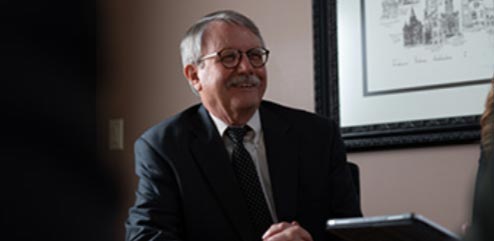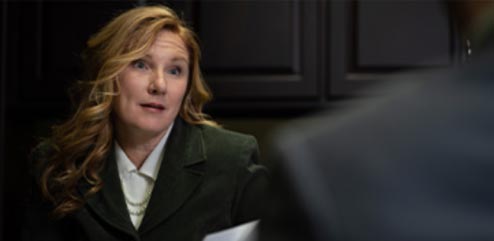Fort Wayne Traumatic Brain Injury Lawyer
Helping people is our priority



Since 1993

In Fort Wayne, Indiana, you have the legal right to seek compensation for a range of damages, if you’ve suffered a traumatic brain injury. We’re here to guide you through that process. Our team at Christie Farrell Lee & Bell has the expertise and the commitment to help you calculate the associated costs when you need a brain injury lawyer to file a personal injury claim and represent you against insurance companies if needed.
Traumatic brain injuries (TBIs) are a silent epidemic with loud repercussions. According to the CDC, TBIs account for about 30% of all injury-related deaths in the United States. That’s a staggering statistic, and if you’re reading this, you or a loved one might be facing the complex challenges that come with a TBI.
What is a Traumatic Brain Injury?
A Traumatic Brain Injury (TBI) occurs when there’s a sudden trauma to the head that disrupts the normal functioning of the brain. These injuries can range from mild concussions to severe conditions that result in permanent brain damage or even wrongful death. But TBIs aren’t just a medical issue; they also have significant legal implications.
In Indiana, if you’ve suffered a TBI due to someone else’s negligence—be it in a car accident, a fall, or any other incident—you have the right to seek legal compensation. This can include damages for medical expenses, lost wages, and even emotional suffering, which will be calculated by your lawyer.
When Do These Injuries Occur? – Common Causes in Indiana
With decades of experience helping victims throughout recovery, we saw how severe head injuries are commonly caused by motor vehicle accidents (such as truck accidents, car accidents, or motorcycle accidents) and even instances of medical malpractice.
Our firm has extensive experience representing clients who have suffered TBIs as a result of these and other types of accidents. Although each case involving trauma to the brain comes with its own set of challenges, when you’ve suffered a TBI due to someone else’s negligence or recklessness, it’s important to explore your legal options to secure the compensation you need to get your life back and pay medical expenses.
Speak with a personal injury lawyer today. Call: 317-488-5500
Damages You Can Recover After a Traumatic Brain Injury in Fort Wayne
Recovering from a traumatic brain injury is not just about physical healing, it’s also about getting the necessary compensation to address the various damages you’ve incurred.
In Fort Wayne, the Indiana Code § 34-51-2 states that you have the right to seek both economic and non-economic damages in a personal injury case:
Economic Damages
Economic damages are meant to compensate you for the financial losses and out-of-pocket expenses you’ve incurred due to the catastrophic injury.
These may include (but are not limited to) medical expenses, rehabilitation costs, and lost wages due to your inability to work during recovery. It’s important to calculate and present these damages thoroughly in your claim to ensure you receive the full compensation you’re entitled to under Indiana law.
Non-Economic Damages
On the other hand, non-economic damages encompass all intangible, non-financial losses you’ve suffered as a result of your injury.
These can be more challenging to quantify but are just as significant. Indiana law recognizes the validity of claims for damages like pain and suffering, emotional distress, and loss of quality of life.
Complete a Free Case Evaluation form now
The Legal Process of Claiming for Compensation
When pursuing a traumatic brain injury claim, it’s crucial to understand what the legal process entails. With careful planning and execution, it’s possible to effectively navigate the legal system.
Here’s a step-by-step overview of what you can expect when filing a personal injury claim:
Step 1: Consultation with an Attorney
The first step in seeking justice after a traumatic brain injury is to schedule a consultation with an experienced personal injury law firm.
During this initial meeting, the attorney will listen to your story, evaluate the circumstances of your injury, and provide you with an informed assessment of your case. This consultation allows you to gain insight into the legal options available to you and to make an informed decision on what to do next.
Step 2: Investigation
After reviewing the details of your case, the legal team will launch a thorough investigation, which involves several steps. Among them, you can expect your attorneys to gather evidence, review medical records, interview witnesses, and reconstruct the events leading up to your injury.
This can seem time-consuming, however, building a strong foundation of evidence is essential in establishing liability and demonstrating the full extent of the damages you’ve suffered. Building a strong case ensures you get adequate compensation for your injuries.
Step 3: Negotiation or Litigation
With a comprehensive understanding of your case, your attorneys can now pursue compensation through either negotiation or litigation.
In some instances, it’s possible to negotiate with insurance companies or the responsible parties and achieve a fair settlement. However, if a satisfactory resolution cannot be reached, then it’s necessary to enter the litigation process. This involves taking your case to court and advocating for your rights before a judge and jury.
Click to contact us today
Seeking Legal Help From Our TBI Lawyer – Don’t Settle for Less
When dealing with the processes after a major accident in your life, having an Indiana-based traumatic brain injury lawyer by your side with the necessary experience, knowledge, and resources can be extremely helpful.
Christie Farrell Lee & Bell has extensive experience handling diverse types of brain injury cases in Fort Wayne and all across the state of Indiana. Throughout the entire legal process, we can support you by advocating for your rights, skillfully negotiating on your behalf, and, if necessary, litigating in court.
Our proven track record of success in personal injury cases demonstrates we can fight for your rights while you focus on your recovery and well-being. Contact us today for a free consultation and let’s explore your options together.

Get a FREE Case Review
Schedule Your Free Consultation










